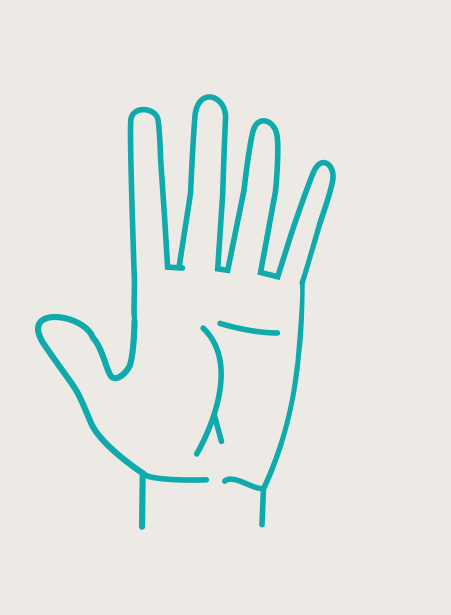As I am writing this I am watching the US election unfold over and take up space of this entire week, sleepless nights and frequent Twitter refresh intervals included.
This US election feels like a script by Shonda Rhimes with all the drama (stolen election!) and the archetypical characters at play here, e.g. the romanticised heroes and villains, that however, in pure Rhimes-style are far from being simplistic but rather are rich in nuances all across the board of personal lives, professional conduct and especially attitudes toward domestic and foreign policies, similar to how one could view the characters across Scandal or How to Get Away with Murder.

This experience has me realising how US-centric world politics and economics are despite it being such a young and fallible state with a questionable democratic system around the electoral college.

Similarly I am realising from my Facebook feed alone how many non-US people including myself are influenced by US politics and how varied the view of the candidates can be depending on how many US-initiated wars and drone strikes one’s home had to endure, always under the premise of bringing development and progress, of establishing democratic principles or fighting threats to the West. Across the latest trends of global polarisation, the US is however not immune from the same issues it often claims to solve abroad, if it has ever been.
This feed by a Kenyan writer and cartoonist shows just how much the current scenario reminds one of Western reporting of elections in the so-called Global South if the same tropes are to be used.
The New Jim Code by Benjamin (2019) seems all the more plausible considering how expansive not only the industrial complexes are (be it military, prison or other government-led institutions) but the usage of technology itself and considering just how much racism and racists publicly present themselves and their ideologies using these technologies, a phenomenon taken to the extreme during this election. The production, consumption and the adaptation of technological tools wields much power over social construction and discourses being shaped, however conscious or unconscious we may be of that power, as the recent documentary Social Dilemma surely made many people aware.
Benjamin’s New Jim Code is yet again just a mere mirror of a divided society and its deeply embedded racism. “[it] draws upon a shared set of methods that make coded inequity desirable and profitable to a wide array of social actors across many settings; it appears to rise above human subjectivity […] because it is purportedly tailored to individuals, not groups […] and ranks people according to merit, not prejudice […], all within the framework of a forward-looking […] enterprise that promises social progress.” (Benjamin, 2019, p. 161). In a way I am reminded of people like Jordan Peterson, who sees himself as an important thought leader and supporter of (white) men’s rights but who, for example in his book “12 Rules for Life” keeps on highlighting an individual person’s agency and competence and in the process entirely disregards historical as well as contemporary contexts of inequity and inequality. Considering that positions of power in Western politics and the technology industry are mostly led by men like him as in white, heterosexual, middle-class and able-bodied, it is no surprise that we encounter these hurdles in all spaces and discourses, both locally and globally.
It is these barriers and the “countercodings that retool solidarity and rethink justice” (Benjamin, 2019, p. 161) that I attempt to shine a light on my previous blog posts with the understanding that some barriers were not meant to be put up but occur because inequity is so engrained in the structures within which we create.
My view across the previous four blog posts has been on disciplines and the intersections of art, politics, design, education, technology, gaming, international aid. The list could go on as each topic intertwines with a plethora of developments taking place at local, regional and global levels. I often refer to my own identity markers of being queer, white, European, cis- and able-bodied and from a middle-class background (with East German roots, so that category is always a bit difficult for me to grasp), as to highlight, which of my own lenses affect my readings and writings. The political view at identity expression may be seen by conservatives as an overtaking of political correctness (see Peterson again), however “representation matters” and “language creates meaning” as many have outlined, including Stuart Hall and all contributors in “Representation” (2012) and the many activists behind movements such as Black Lives Matter that also take an important role in other student blogs from this course. This is why in my readings for this course, the causes I support, the artists I pay most attention to and whose work I support as well as in many other areas I look for people “from or working within marginalised populations” that “speak truth to power” (Gilsdorf in Vikram, 2019) and critically look at the status quo as well as ongoing political developments in their assessments of their respective fields.
In my attempts to work toward a rich pluralist society, a few focus areas and terms keep popping up that also made their way into my blog posts and that I see as a red string tying together the range of posts. One of these ones to be aspire to would be rematriation as a means to counteract current hegemonic patriarchal and capitalist structures not only in the West and so-called Global North but globally. The more common term repatriation is often used in a post-colonial world when talking about the returns to the former colonies. What this however also implies is a return to a patriarchal society, one based on domination and colonisation, on the use of force and power, on inequality “by nature”, on top-down structures. This is then implicitly portrayed as the natural order of things when actually pre-colonial times showed various matriarchal societies as the norm before scarcity of resources led to a culture of dominance and war (von Werlhof, 2019). Not only do some of these matriarchies survive across indigenous cultures all around the globe, but there is also an increasing movement to respect and learn from these matriarchal approaches as a potential new world order of a gift economy rather than one of a neoliberal nature. When speaking of rematriation I do not refer to a dominance of motherly figures but to a redistribution of wealth across all industrial apparatuses to “undo” colonisation, to a more horizontal governing structure with plenty of citizen participation, with freedoms that cover LGBTQIA+ rights, minority rights, workers’ rights, migration, protection of natural resources and many more (von Werlhof, 2019).
Rematriation is only one of key learnings taken from indigenous knowledge that has been preserved by indigenous activists globally. It is their persistent and unwavering stance on the protection of knowledge and wisdoms that I have to thank and honour and which guides me through my work co-running a cultural centre in Berlin, Germany, as well as particularly now my perception of artworks like I covered in my post on gaming as activism. Within the same sphere or realm of knowledge I looked at nature rights and non-extractivist approaches around decoloniality when talking about how Martian Matter Matters. Nature rights, stemming from a belief system around earth spirituality that values all of nature’s human and non-human beings (Eisenstein, 2019), are an assimilated approach to Western structures based on indigenous knowledge. Several communities worldwide have in that manner granted personhood or the legal rights of a person to natural beings such as mountains or rivers and as such protected its sanctity.

In matriarchal societies there would ideally be also a protection of all gender indenties and expressions, be it a female, third gender, two-spirit, non-binary, trans or others as well as sexual orientations (von Werlhof, 2019). In short, a queerfeminist approach, that lies at the core of my work and beliefs, can be found across indigenous approaches and is covered by rematriation. The dominance of the straight male is often just a remnant of both colonial and globalising forces (Spencer-Wood, 2016) as well as the Abrahamitic religions (M’barek, 2019) and does not, as is often proclaimed, a trait of societies from the Global South.
While it may at first seem like economics could be an exact science with all its mathematical approaches and arguments of rationality and functionality, I am one of the people convinced that it actually aligns much more with the sphere of social sciences as it cannot be looked at as a factual understanding of the world but rather as an interplay of various forces in a certain historic context, such as social, ideological, cultural, environmental and religious influences certainly shape its status quo (Acosta, 2019). I do believe that we cannot ignore economic forces, that is the influence of a globalised capitalist patriarchal system that is highly racialised, in any analysis of art and culture, as is my daily occupation. In that same regard I consider development and its aid industry that has its troubling history in a near-continuation of colonial imperatives and decisions in the so-called Global South (Gould, 2019 and Eyben, 2014). While the related global institutions and their links to post-2nd World War conflicts is problematic as well there at least was a trend toward the now Sustainable Development Goals that can clearly be applied to societies in the so-called Global North as well as none of the 17 goals seem to have been achieved by modernity. As such I consider development in its moral understanding as an area of work that applies to all regions of the world and does not allow for moral superiority of those few global leaders. In alignment with this understanding I believe that we need a post-economic thinking in a post-colonial world to be able to cater to the various contextual challenges that arise and that in all universality are still thoroughly nuanced and could likely never be met by an extractivist neoliberal approach (Acosta, 2019).

This brings me to another focus that shaped my writing of the blog posts for this course. I aim at challenging the perceived universality of Western-conceived concepts such as design thinking, development aid, globalisation. While I myself am a design thinker based on my academic and professional background, I am now considering myself as part of the reckoning with all that is colonial about this industry. Just like development its gestation took place in the West, actually accompanied by development practitioners, and as such it falls into similar problem areas. Western institutions once again seem to have gained dominance over an inherently human activity, that of design. Like the term development, that seems so promising to any forward-thinker, also design thinking taps into basic needs like empathy. As Benjamin points out, this use of empathy as a driver often hides the failures of processes like design thinking (2019, p. 168 – 175), of those who deploy it on their subjects and at the end have once more just engaged in an exercise of empathy that left them checking boxes but far from truly acting in solidarity. Maybe that is why design thinking seems oh-so-appealing to the aid workers in the field, as it is so much more practical, graspable and allows one to not get stuck in log frames. In a globalised world these processes spread like wildfire and ensure a Western dominance, when actually the groundwork of solidarity exploited by these fields has been accomplished by non-Western actors like Paolo Freire and his pedagogy of the oppressed. But the credit is rarely given (2019, p. 177). It is movements like the alter-globalisation movement and its World Social Forum that are not acting in opposition but offer alternatives that tend to respect, protect and learn from indigenous knowledge across the globe and help disseminate said knowledge (Pleyers, 2019).
In this way I find myself closing a circle around a rematriation discourse that covers all my blog posts as part of this course exercise. While I only superficially scratch on the surface and its various pillars in this exercise I am excited to further dive into these topics, explore the intersections within and outside of the discourse and to keep supporting platforms that allow marginalised voices to be heard. This can only happen if we foster critical views and vulnerability in our daily practices. A critique should in my view lead to empowerment of the oppressed and a rebalancing of our flawed structures, both on the level of national elections with global repercussions as well as on much small localised levels. So when looking at the topics and cases I cover this is my intention. As curator and critic Anuradha Vikram states “whether or not I agree with their choices […] thank you for giving me such rich material to work from.” (Vikram, 2019)
This exercise felt challenging at times as I have not quite found a journalistic writing style that I feel confident about, because I would have loved to include more in-depth, qualitative and in-person research into my posts, because writing several posts in such a short timeline felt stressful at best and because I never aimed for my words to become and remain so public. On the other hand I am grateful for the opportunity in these posts to be opinionated, to not hide that fact and to get a chance to put my politics on display. This was fuelled my admiration for new media and even the transhumanist idea of the merging of (wo)men*kind and machine (Novak, 2019), for which I follow Benjamin’s recommendation of requiring audits, of requiring supervision that forces technologists globally to follow a community-driven code of conduct (2019), that places rights on consumers and restrictions on producers of technology and that, while acknowledging that there is no turning back, is careful in what we wish for, hoping that we could all wish for is solidarity and a weakening of the New Jim Code that oppresses the majority of people if it were to grow.
References:
Acosta, Alberto. (2019). Post-Economia. In: Kothari, Ashish; Salleh, Ariel,;Escobar, Arturo; Demaria, Federico; Acosta, Alberto (ed.). (2019) Pluriverse. New Delhi: Tulika Books.
Benjamin, Ruha. (2019). Race After Technology. Cambridge: Polity Press.
Eisenstein, Charles. (2019). Earth Spirituality. In: Kothari, Ashish; Salleh, Ariel,;Escobar, Arturo; Demaria, Federico; Acosta, Alberto (ed.). (2019) Pluriverse. New Delhi: Tulika Books.
Eyben, Rosalind (2014) International Aid and the Making of a Better World: Reflexive Practice. Oxon: Routledge.
Hall, Stuart, Evans, Jessica and Nixon, Sean (ed.) (2013) Representations. Cultural Representations and Signifying Practices, Second Edition. London: Sage.
Novak, Luke. (2019). Transhumanism. In: Kothari, Ashish; Salleh, Ariel,;Escobar, Arturo; Demaria, Federico; Acosta, Alberto (ed.). (2019) Pluriverse. New Delhi: Tulika Books.
Spencer-Wood, Suzanne M. (2016). Feminist Theorizing of Patriarchal Colonialism, Power Dynamics, and Social Agency Materialized in Colonial Institutions. International Journal of Historical Archaeology, 20(3), 477-491.
Pleyers, Geoffrey. (2019) Alter-Globalization Movement. In: Kothari, Ashish; Salleh, Ariel,;Escobar, Arturo; Demaria, Federico; Acosta, Alberto (ed.). (2019) Pluriverse. New Delhi: Tulika Books.
Vikram, Anuradha. (2019). Decolonizing Culture. San Francisco: Sming Sming Books.
Von Werlhof, Claudia. (2019). New Matriarchies. In: Kothari, Ashish; Salleh, Ariel,;Escobar, Arturo; Demaria, Federico; Acosta, Alberto (ed.). (2019) Pluriverse. New Delhi: Tulika Books.


